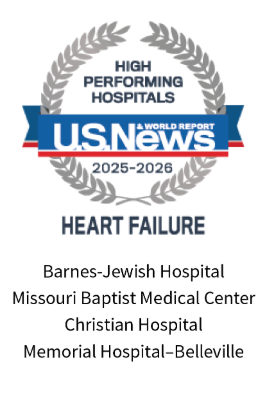What is heart failure?
The heart is a muscle that pumps oxygen-rich blood to all parts of the body. When you have heart failure, the heart can’t pump as well as it should. Or the heart muscle can’t relax and fill the pumping chamber with blood. Blood and fluid may back up into the lungs. This causes heart failure. And it causes pulmonary edema. Some parts of the body also don’t get enough oxygen-rich blood. This means they can't work well. These problems lead to the symptoms of heart failure.
Will I need a heart failure device or surgery?
The cause of heart failure will guide the treatment plan. If heart failure is caused by a valve problem or coronary heart disease, then you may need a procedure. This may be a percutaneous coronary intervention. Or it may be surgery. If heart failure is caused by a problem, such as anemia or an infection, you may need medicine to treat this problem.
Some causes of heart failure are reversible or short-term, such as an acute infection. For many causes of heart failure there is no cure. But many forms of treatment can help with symptoms.
What medications treat heart failure?
Many types of medicines are available for heart failure. They include:
- Angiotensin converting enzyme (ACE) inhibitors. These lower the pressure inside the blood vessels. This reduces the pressure that the heart has to pump against. They can also help the heart have better pumping ability over time.
- Angiotensin receptor blockers (ARB). Some people get a cough and need to stop taking ACE inhibitors. If that happens, an ARB may work for you. These help relax blood vessels and reduce stress on the heart.
- Angiotensin receptor-neprilysin inhibitors (ARNIs). This medicine combines an ARB and a neprilysin inhibitor. This can help the heart as noted above. And it can promote salt and water loss. This medicine is preferred over ACE inhibitors and ARBs alone.
- Diuretics. These reduce the amount of fluid in the body. They are among the most important medicines in helping control fluid buildup in the body.
- Beta-blockers. These reduce the heart’s tendency to beat faster. They can also help the heart pump better over time.
- Aldosterone blockers. These block the effects of the hormone aldosterone. This hormone causes sodium and water retention.
- Vasodilators. These include hydralazine and nitroglycerin. These widen (dilate) the blood vessels. They reduce the workload on the heart.
- Statins or PCSK9 inhibitors. These lower the amount of bad cholesterol in your blood. They are not used to treat heart failure. But you may take one if you have high cholesterol. Or you may take one if you have had a past heart attack and are at risk for heart failure. People who have inherited forms of high cholesterol (familial hypercholesterolemia) may get help from PCSK9 inhibitors. These medicines lower cholesterol.
- Sodium-glucose cotransporter-2 (SGLT2) inhibitors. They block your kidneys from reabsorbing sugar from the blood. This helps your body get rid of extra salt and water and so lowers your blood pressure. Lowering your blood pressure eases the strain on your heart.
- Digitalis. This medicine helps the heart beat stronger. It may help with controlling heart rate if there is an abnormal heart rhythm.
- Antiarrhythmics. These help keep normal heart rhythm.
- Sinus node I-f channel blocker. This may be used to lower your heart rate. It may result in less stress on your heart. This medicine is reserved for people who still have high resting heart rates despite use of beta blockers.
